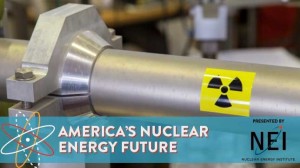Small Nuclear Reactors to effect Energy Policy
< < Go Back
Federal officials are preparing for a future in which small nuclear reactors are a key piece of the United States’ energy policy.
The reactors are less than 300 megawatts in capacity and usually manufactured away from the place they are operated. Proponents say the reactors, less than a third the size of a reactor at a standard power plant, could bring the greenhouse gas and other benefits of nuclear power with a lower cost.
But the same problems that have slowed development of full-size nuclear reactors to nearly a halt – safety and cost – could keep delaying or even kill the potential for small modular reactors to take off.
– Sen. Lisa Murkowski (R-Alaska), chairwoman of the Energy and Natural Resources Committee, said that the federal government has to make sure it does not stand in the way of small reactors, or they might not be viable.
– Sen. Lamar Alexander (R-Tenn.), who chairs the spending subcommittee panel with authority over energy, said at a recent hearing that federal research spending should prioritize small modular reactors, part of the GOP lawmaker’s goal to double energy research funding.
– The Obama administration is also on board with pushing further development of small reactors, arguing that it is an essential step to making major cuts in carbon emissions.
The Energy Department is working on multiple fronts to help the industry. It is dedicating $452 million over six years to help reactors get licensed, partnering with mPower America to develop a reactor with a goal of operation by 2022 and working with NuScale Power on its own reactor development, a program worth $217 million. The department also has an industry-wide program aimed at assisting with licensing.
The nuclear power sector has argued in recent years that the NRC needs to update its safety regulations to accommodate small reactors. However, the prospect of changing rules for small reactors is troubling to nuclear safety and security advocates.
More From NCPA:




